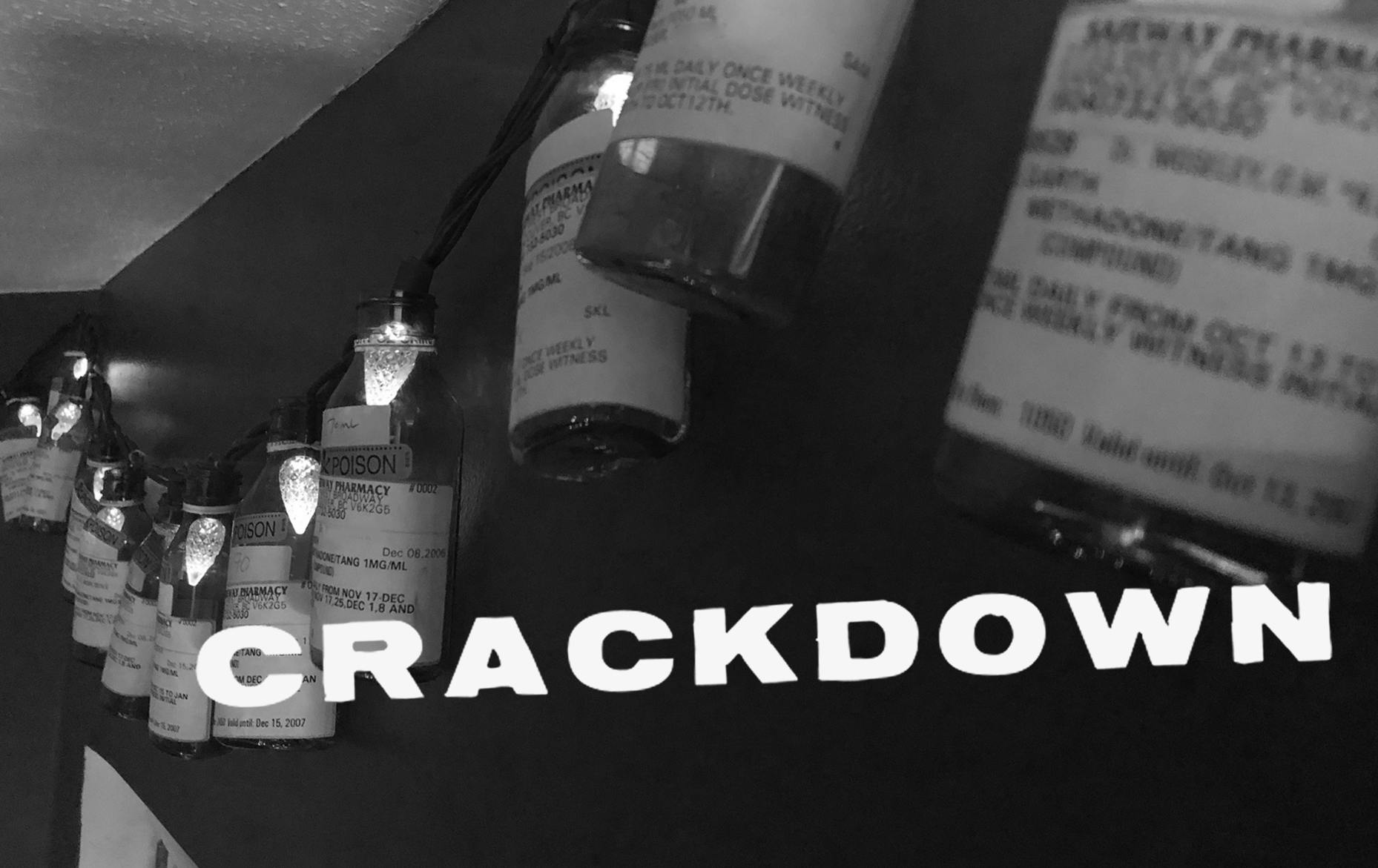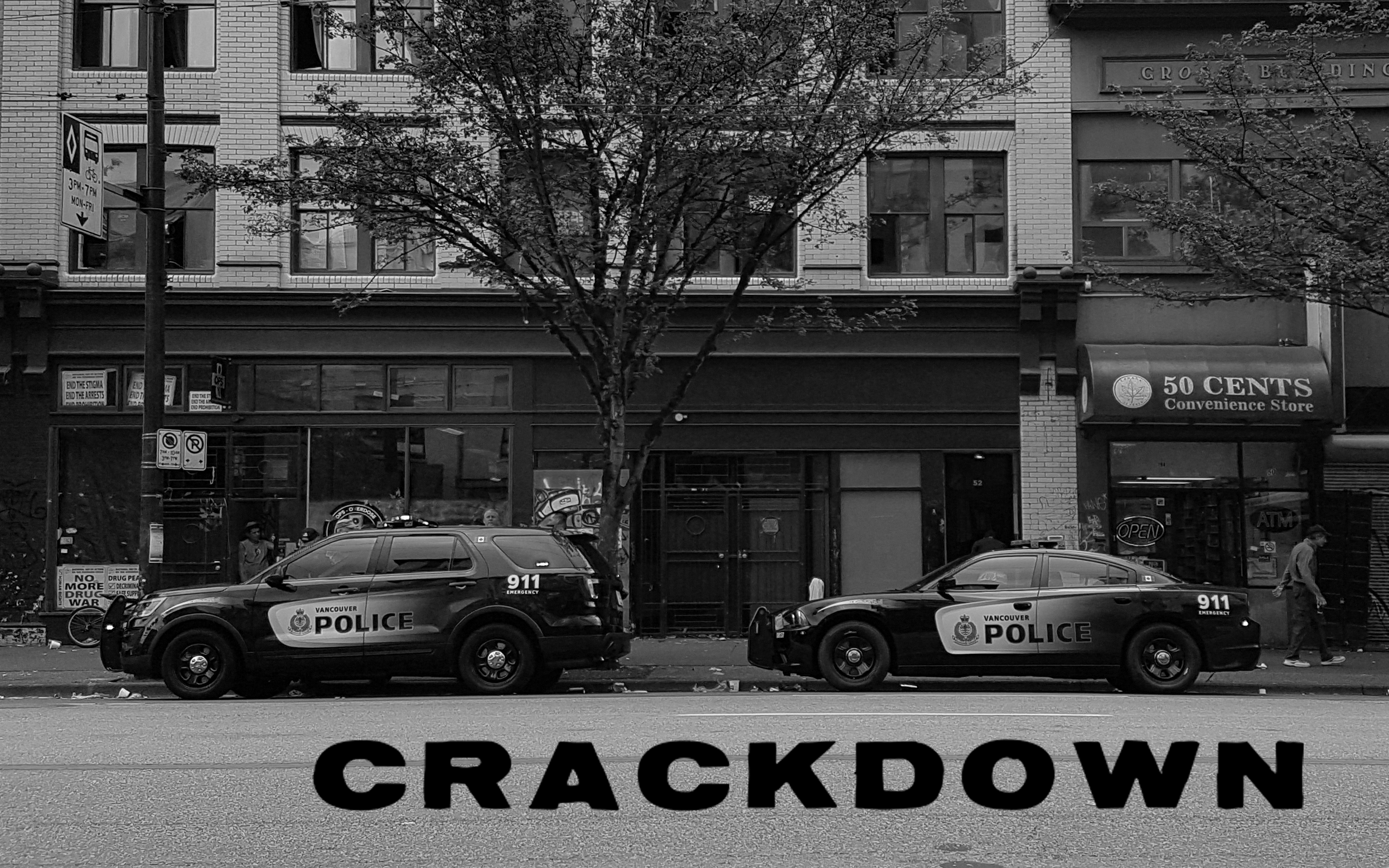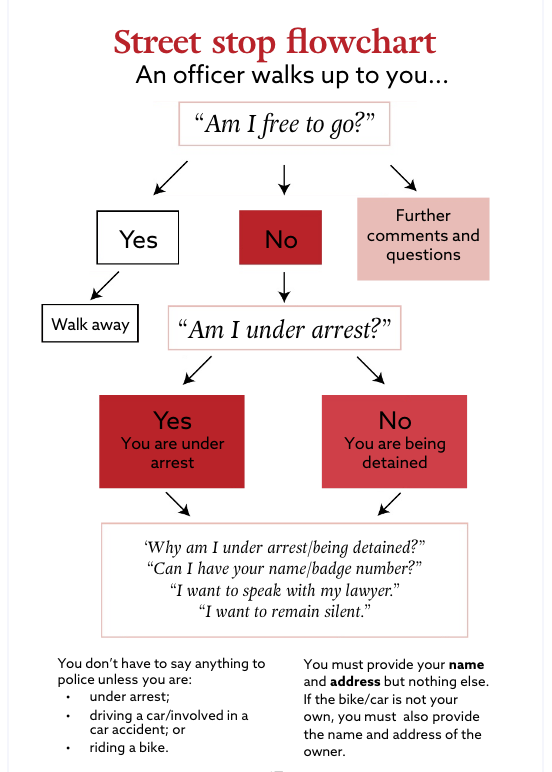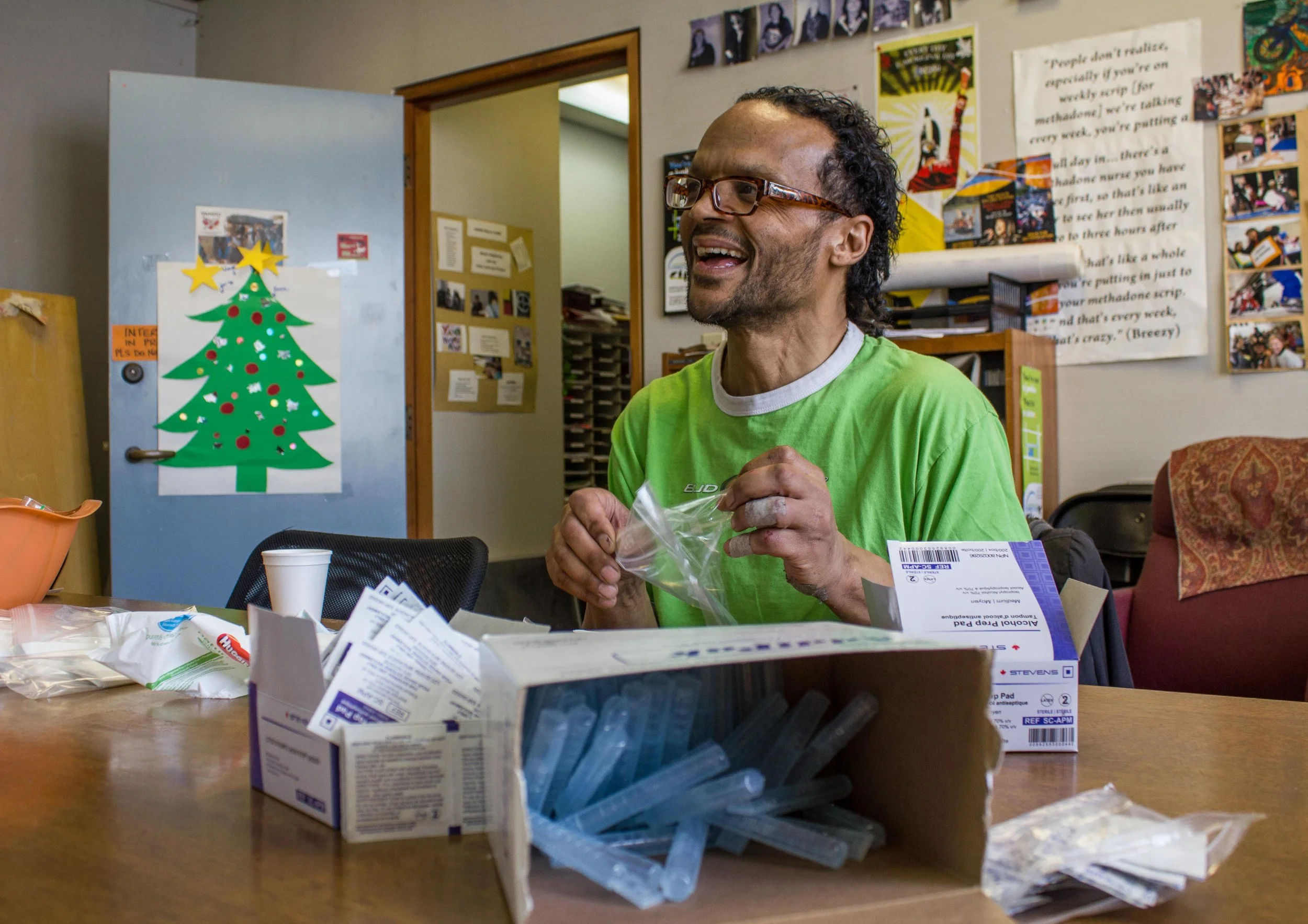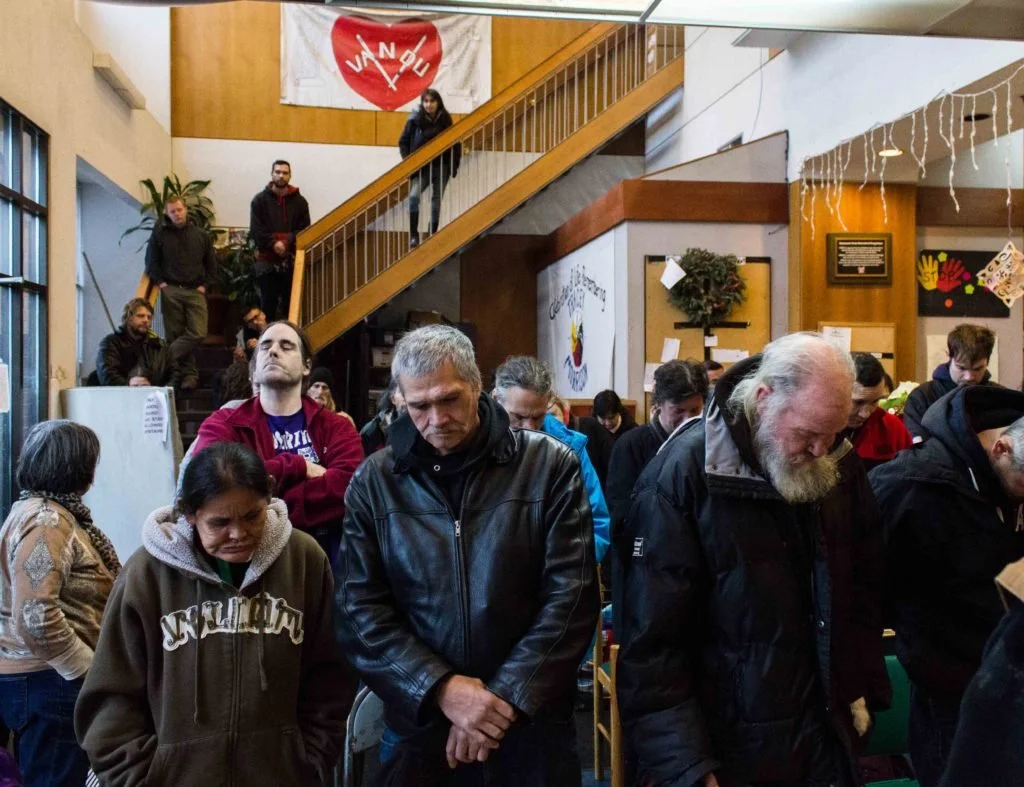Episode 9: Change Intolerance Part 2
Crackdown investigates the relationship between the BC government and Mallinckrodt Pharmaceuticals. Many people on methadone complain that Methadose® “doesn’t have legs.” Why hasn’t the government provided them with a more effective option?
Image: Garth’s collection of “old school” methadone bottles. (Photo: Garth Mullins)
Crackdown investigates the relationship between the BC government and Mallinckrodt Pharmaceuticals. Many people on methadone complain that Methadose® “doesn’t have legs.” Why hasn’t the government provided them with a more effective option?
This episode follows Episode 2: Change Intolerance.
Transcript
A full transcript of this episode is available here.
Crackdown and BCAPOM Demands
We demand access to the old methadone formulation immediately. Give us medication that works for us, whether that is methadone, Metadol-D, Suboxone, slow release oral morphine, injectable Dilaudid, or prescription heroin.
We demand to have a say in policy decisions about our lives. Nothing about us without us.
We demand an apology from Mallinckrodt, the BC Ministry of Health, and the BC College of Pharmacists.
We demand a formal investigation to determine why Methadose® failed.
Works Cited
Gourevitch, Marc, Diana Hartel, Peter Tenore, Katherine Freeman, Ira Marion, Joe Hecht, Joyce Lowinson. “Three Oral Formulations of Methadone: A Clinical and Pharmacodynamic Comparison.” Journal of Substance Abuse Treatment 17:3 (1999): 237-241.
Greer, Alison. Sherry Hu, Ashraf Amlani, Sarah Moreheart, Olivia Sampson, and Jane Buxton, “Patient Perspectives of Methadone Formulation Change in British Columbia Canada: Outcomes of a Provincial Survey.” Substance Abuse Treatment, Prevention, and Policy 11:3 (2016): 1-8.
McNeil, Ryan, Thomas Kerr, Solanna Anderson, Lisa Maher, Chereece Keewatin, M.J. Milloy, Evan Wood, Will Small. “Negotiating Structural Vulnerability Following Regulatory Changes to a Provincial Methadone Program in Vancouver, Canada: A Qualitative Study.” Social Science and Medicine 133 (2015): 168-176.
Mullins, Garth. “New Methadose is Failing the People it’s Designed to Assist, Says Local Researcher.” Megahopne, June 15, 2015.
Silver, Junell, Howard Shaffer. “Change Intolerance to Shifts in Methadone Formulation: A Preliminary Investigation.” Journal of Substance Abuse Treatment 13:4 (1992): 331-39.
Socias, Eugenia, Evan Wood, Ryan McNeil , Thomas Kerr, Huiru Dong, Jean Shoveller, Julio Montaner, M.J. Milloy. “Unintended Impacts of Regulatory Changes to British Columbia Methadone Maintenance Program on Addiction and HIV-related Outcomes: An Interrupted Time Series Analysis.” International Journal of Drug Policy 45 (2017): 1-8.
Steels, M.D., M. Hamilton, and P.C. McLean. “The Consequence of a Change in Formulation of Methadone Prescribed in a Drug Clinic.” British Journal of Addiction 87 (1992): 1549-54.
Additional Reading
Moreheart, Sarah. “BC’s Change in Methadone Formulation: A Metanarrative Review of the Literature.” 2016.
Soyka, Michael and Christina Zingg. “Feasibility and safety of transfer from racemic methadone to (R)-methadone in primary care: Clinical Results from an Open Study.” The World Journal of Biological Psychiatry 10:3 (2009): 217-224.
Credits
Crackdown is produced on the territories of the Musqueam, Squamish, and Tseil-Waututh Nations.
Special shout out this month to Zoe Dodd for showing us all how to most effectively interrupt a minister while they’re giving a speech.
Crackdown’s Editorial Board is: Samona Marsh, Shelda Kastor, Greg Fess, Jeff Louden, Dean Wilson, Dave Murray, Al Fowler, Laura Shaver, and Chereece Keewatin. RIP Chereece.
Crackdown is produced by Sam Fenn, Lisa Hale, and Alexander Kim.
Our science advisor is Ryan McNeil.
I’m Garth Mullins, host, writer and executive producer.
You can follow me on twitter @garthmullins.
Original score written and performed by Sam Fenn, Jay Heen, Kai Paulson, James Ash and me. Our theme song was written by me and Sam with accompaniment from Dave Gens and Ben Appenheimer.
We get funds from the Canadian Institutes of Health Research and the Social Sciences and Humanities Research Council of Canada.
Episode 8: The Cost of Cereal
Men are dying at a higher rate than women during the opioid crisis, which means women sometimes get left out of the conversation. On Episode 8 of Crackdown, we go to SisterSpace, North America’s first women-only safe consumption site.
Image: Colouring pages posted on the back wall of SisterSpace, North America’s first women-only overdose prevention site. (Photo: Garth Mullins)
Men are dying at a higher rate than women during the opioid crisis, which means women sometimes get left out of the conversation. On Episode 8 of Crackdown, we go to SisterSpace, North America’s first women-only safe consumption site.
CORRECTION: Overnight funding for SisterSpace runs out at the end of September, 2019.
Transcript
A full transcript for this episode is available here.
Call to Action
If you want to see more funding to extend hours of overdose prevention sites like SisterSpace, write to The City of Vancouver, Vancouver Coastal Health, and the B.C. Ministry of Health.
August 31 is International Overdose Awareness Day. Events are taking place around the world. Check out Overdoseday.com.
If you want to learn how to use Naloxone to reverse an overdose, you can get training here: naloxonetraining.com
Image: Patricia Monty points out an early piece of colouring she did at SisterSpace. The piece reads “Don’t compromise yourself. You are all you got.” (Photo: Garth Mullins)
Image: Garth “Big Galoot” Mullins, next to Patricia Monty in the entrance to SisterSpace (Photo: Polly Leger)
Reading List
Boyd J, Collins A, Lavalley J, Mayer S, McNeil R. (2019). “Bed Bugs and Beyond”: An ethnographic analysis of North America’s first women-only supervised drug consumption site. 26th Harm Reduction International Conference. Porto, Portugal.
Collins et al. (2019) Gender and the overdose crisis in North America: Moving past gender-neutral approaches in the public health responseInternational Journal of Drug Policy
Boyd et al. (2018) Gendered violence and overdose prevention sites: a rapid ethnographic study during an overdose epidemic in Vancouver, Canada Society for the Study of Addiction
Bardwall et al (2018) Characterizing peer roles in an overdose crisis: Preferences for peer workers in overdose response programs in emergency shelters. Drug and Alcohol Dependance
Kennedy et al. (2019) Peer worker involvement in low-threshold supervised consumption facilities in the context of an overdose epidemic in Vancouver, Canada. Social Science & Medicine
Collins et al. (2019) The intersectional risk environment of people who use drugs. Social Science & Medicine
Credits
Garth Mullins is Crackdown‘s host and executive producer.
Crackdown is produced by Alexander Kim, Polly Leger, Lisa Hale, Sam Fenn, and Gordon Katic.
Thank you to SisterSpace for having us.
Crackdown’s Editorial Board is: Samona Marsh, Shelda Kastor, Greg Fess, Jeff Louden, Dean Wilson, Laura Shaver, Dave Murray, and Al Fowler. Rest In Peace Chereece Keewatin.
Our scientific advisers are Ryan McNeil and Jade Boyd from the BC Centre on Substance Use and the Department of Medicine at the University of Britsh Columbia.
Original score written and performed by Sam Fenn, Jacob Dryden, Kai Paulson, James Ash and Garth Mullins. Our theme song was written by Garth and Sam with accompaniment from Dave Gens and Ben Appenheimer.
Funding for Crackdown comes from the Social Sciences and Humanities Research Council and the Canadian Institutes of Health Research.
Episode 7: Stand Down
The Vancouver Police say they’re for harm reduction, but everyone we talk to in the Downtown Eastside says otherwise. On Episode 7 of Crackdown, Garth asks the cops to stand down.
Image: Vancouver Police vehicles parked outside an overdose prevention site on East Hastings Street. (Photo: Alexander Kim)
The Vancouver Police say they’re for harm reduction, but everyone we talk to in the Downtown Eastside says otherwise. On Episode 7 of Crackdown, Garth asks the cops to stand down.
Transcript

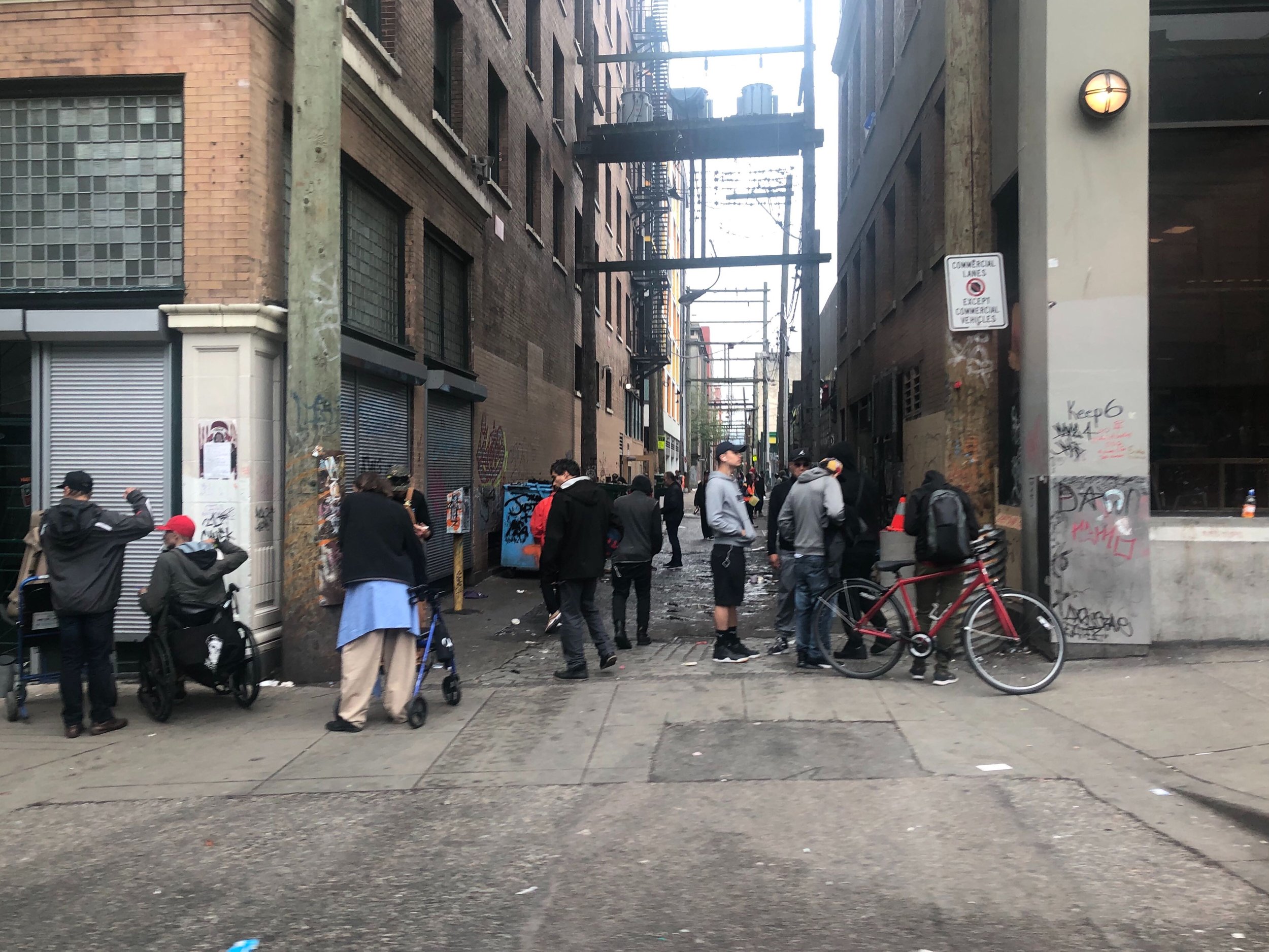
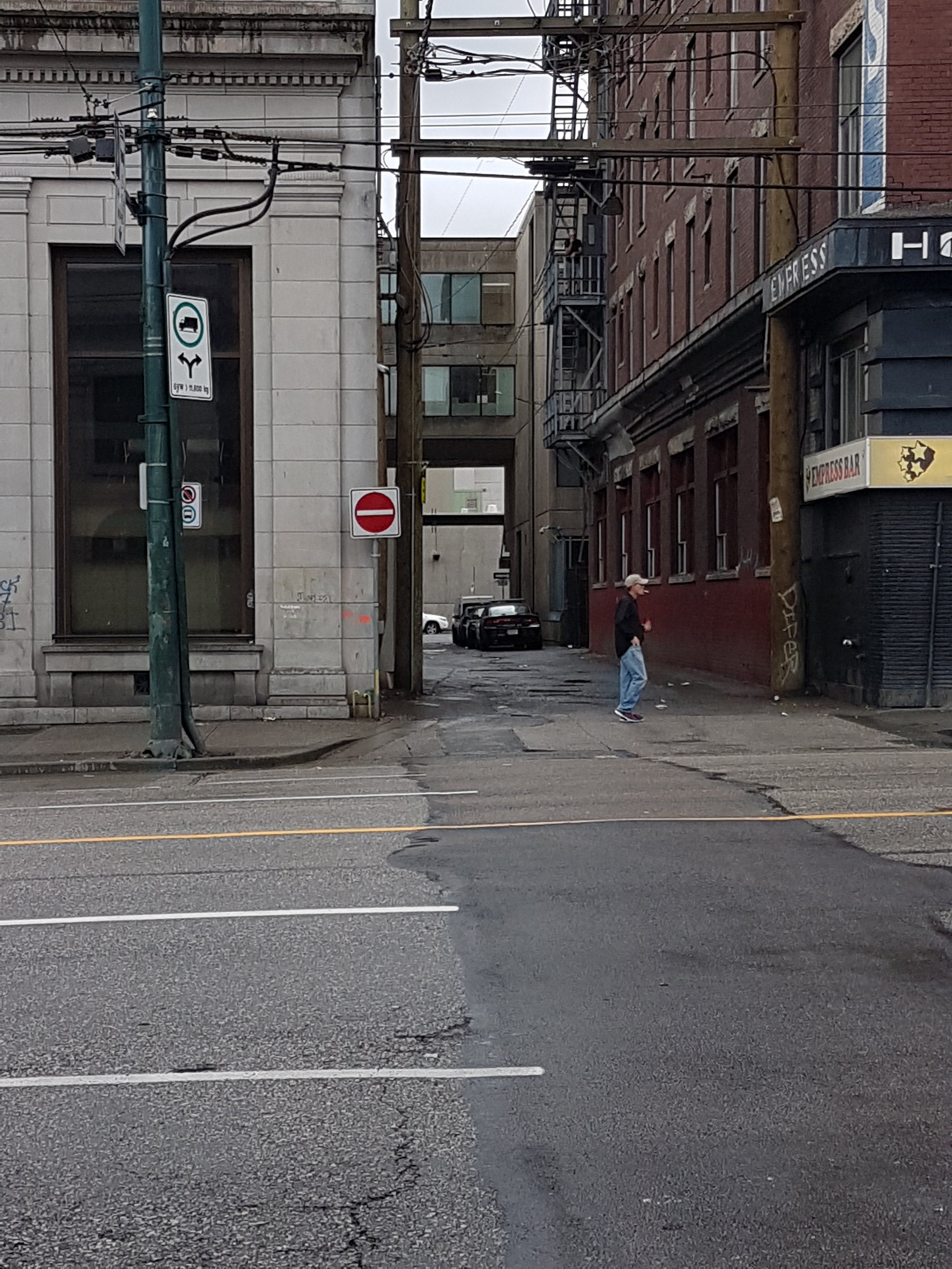
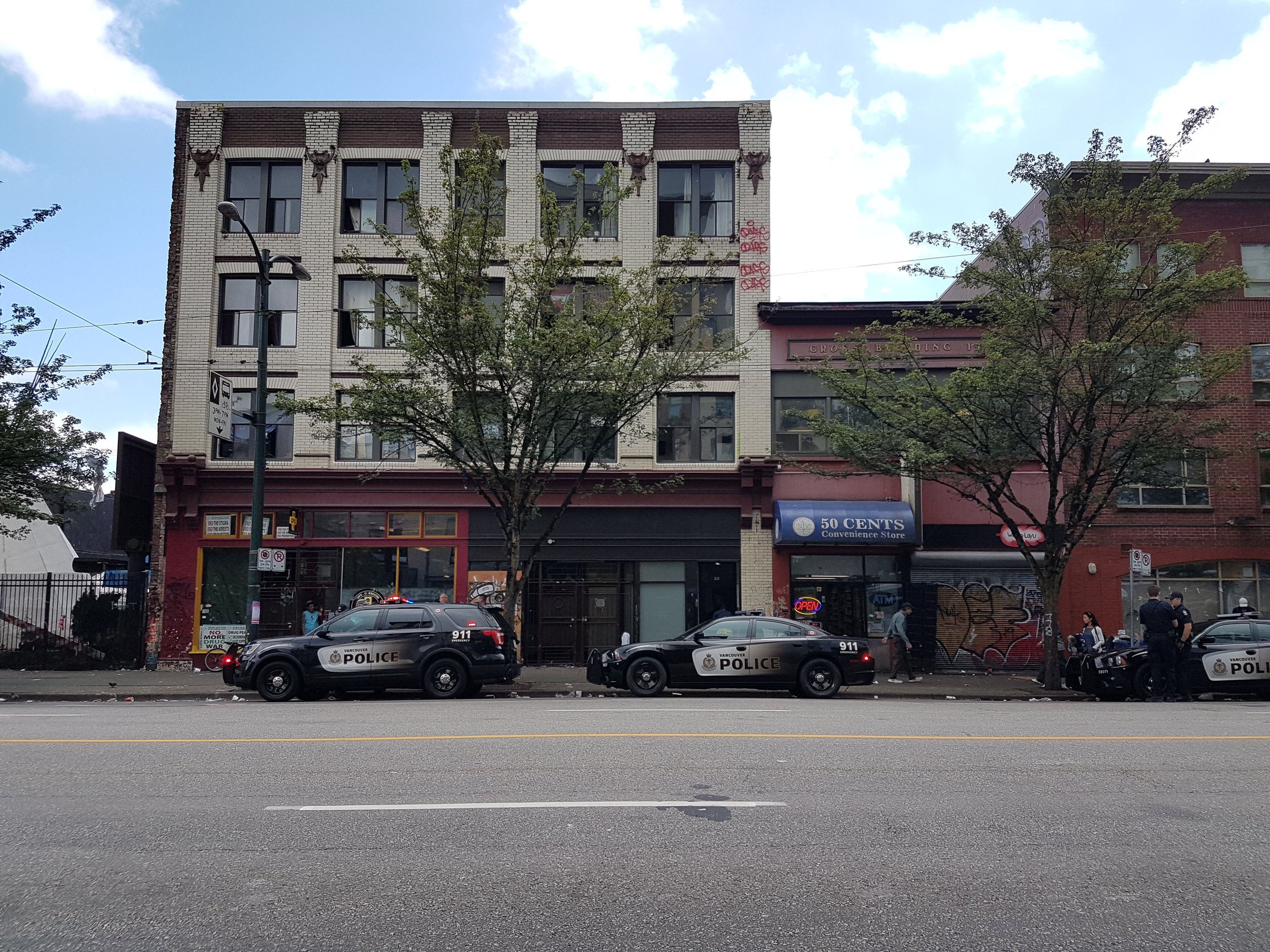

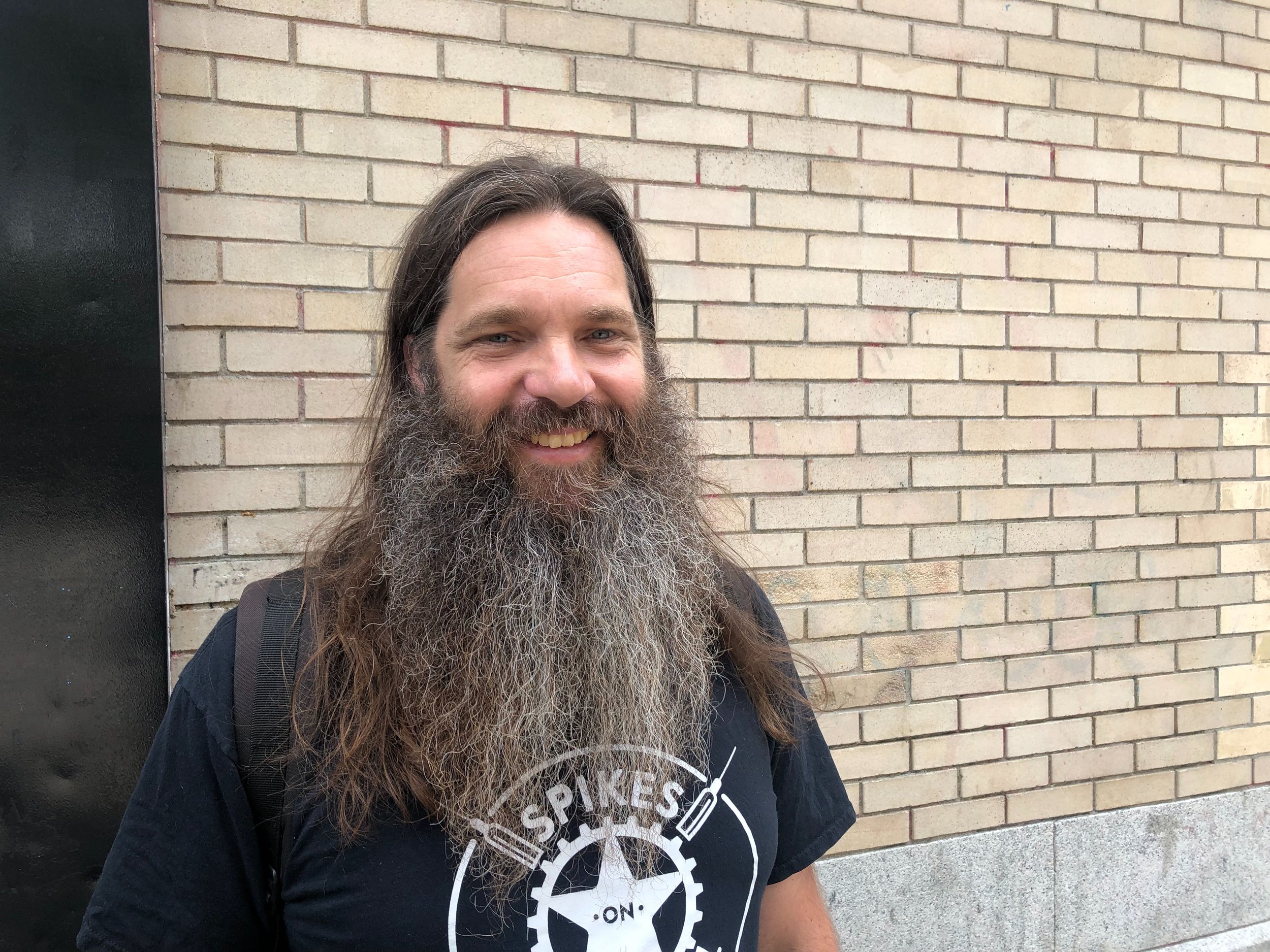
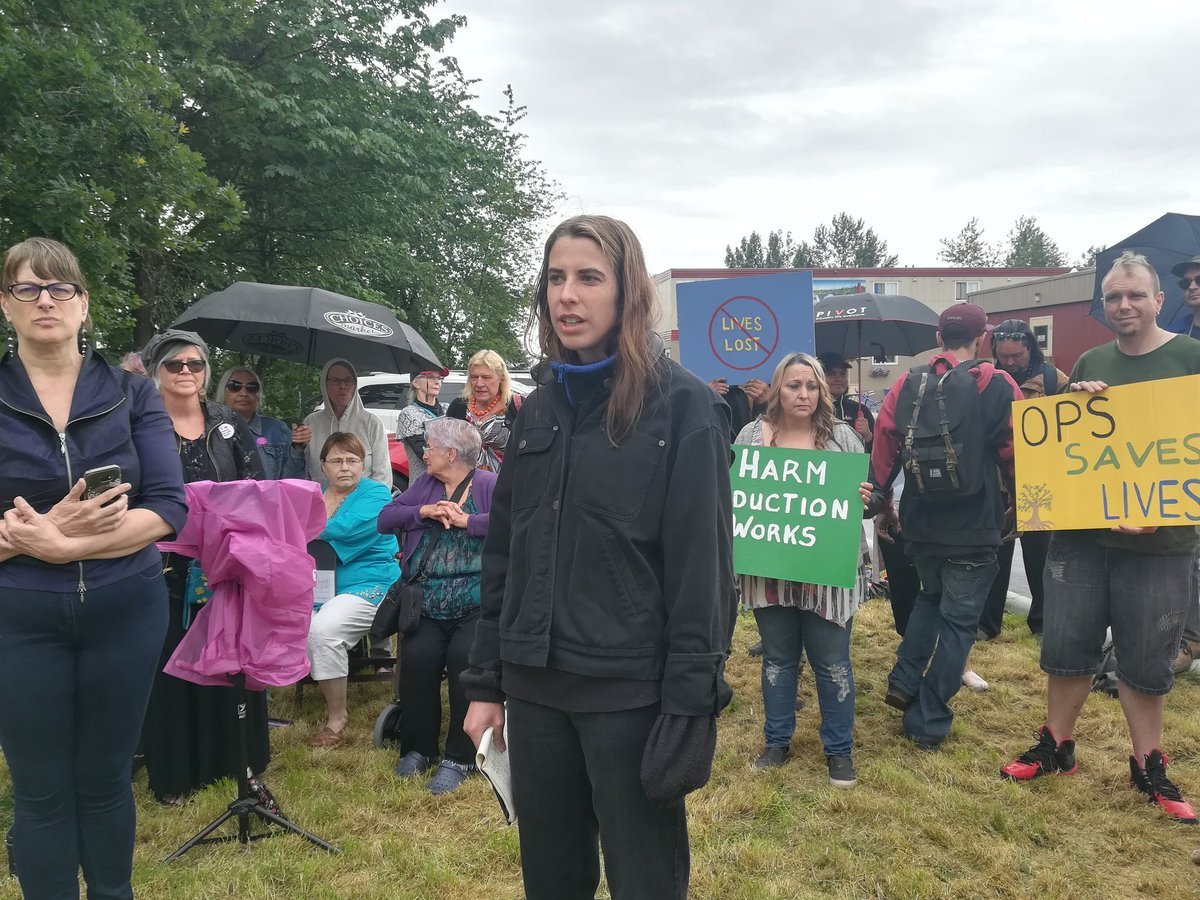
Know Your Rights
The Pivot Legal Society has put together this handbook for people who rely on public space. It has basic information about your rights when you’re stopped by the cops, and what you can do.
Reading List
Bennett, Darcie and Larkin, DJ (2018) Project Inclusion: Confronting Anti-Homeless & Anti-Substance User Stigma in British Columbia. Vancouver: Pivot Legal Society.
Boyd, Susan (2018) Drug use, arrests, policing, and imprisonment in Canada and BC, 2015-2016. Vancouver: Author.
Boyd, Susan (2018) Drug Arrests in Canada, 2017 (Addendum). Vancouver; Author.
Collins et al. (in press) Policing in the overdose crisis: A rapid ethnographic study of the impact of law enforcement practices on the effectiveness of Overdose Prevention Sites.
Pivot Legal Society (2019) Know Your Rights: A guide for people who rely on public space. Vancouver: Authors.
Lupick, Travis (2016) Injection tent volunteers seek better relations with Vancouver police to help manage fentanyl crisis. The Georgia Straight.
Lupick, Travis (2019) B.C. harm-reduction groups ask Mike Farnworth to reconsider top health officer’s report on overdose deaths. The Georgia Straight.
McNeil et al. (2015) Area restrictions, risk, harm, and health care access among people who use drugs in Vancouver, Canada: A spatially oriented qualitative study. Health & Place 35: 70-78.
Vancouver Police Department (2006) Vancouver Police Department Drug Policy (Adopted Sept 2006).
Vancouver Police Department (2018) Regulations & Procedures Manual. Policy 1.6.28 (Effective 2006.06.29)
Credits
Garth Mullins is Crackdown‘s host and executive producer.
Crackdown is produced by Alexander Kim, Lisa Hale, Sam Fenn, Polly Leger and Gordon Katic.
Crackdown’s Editorial Board is: Samona Marsh, Shelda Kastor, Greg Fess, Jeff Louden, Dean Wilson, Laura Shaver, Dave Murray, and Al Fowler. Rest In Peace Chereece Keewatin.
Our scientific adviser is Ryan McNeil from the BC Centre on Substance Use.
Original score written and performed by Sam Fenn, Jacob Dryden, Kai Paulson, James Ash and Garth Mullins. Our theme song was written by Garth and Sam with accompaniment from Dave Gens and Ben Appenheimer.
Funding for Crackdown comes from the Social Sciences and Humanities Research Council and the Canadian Institutes of Health Research.
Episode 6: Room 821
What happens when your options are being kicked out on the street or living in a room filled with mould, trash and rats? Episode 6 of Crackdown looks at how the housing and overdose crises are intertwined, and what happens when tenants fight back.
Image: The Balmoral Hotel from street level, shut down and boarded up. The building was declared unsafe by the City of Vancouver in 2017. (Photo: Alexander Kim)
What happens when your options are being kicked out on the street or living in a room filled with mould, trash and rats? Episode 6 of Crackdown looks at how the housing and overdose crises are intertwined, and what happens when tenants fight back.
This story features a profile of Vancouver’s Downtown Eastside SRO Collaborative as well as their Tenant Overdose Response Project. Find out more here.
If you want to learn how to use Naloxone to reverse an overdose, you can get training here: naloxonetraining.com.
Transcript
Image: “Battle of the Balmoral” Block Party, June 11, 2017. (Photo: Garth Mullins)
Image: Jay Slaunwhite and Garth Mullins across the street from the Balmoral. Jay moved into the Balmoral Hotel in 2014. (Photo: Sam Fenn)
Call to Action
The housing crisis and illegal evictions disproportionately impact people who use drugs. The BCCSU is calling on the City of Vancouver and the Government of British Columbia to:
Include people who use drugs in policy-making decisions around low-income rental housing. Nothing for us without us;
Track evictions from private and non-profit housing to help identify potentially problematic landlords;
Revise the Residential Tenancy Act to protect and meet the needs of the most vulnerable tenants;
Change to opt-out arbitration for evictions and fund community legal advocates to support vulnerable tenants;
Enforce standards and maintenance by-laws and issue real penalties, including expropriation for the worst offenders;
Require a higher threshold for evicting tenants from non-profit housing;
Reading List
Bardwell et al. (2018). Addressing Intersecting Housing and Overdose Crises in Vancouver, Canada: Opportunities and Challenges from a Tenant-Led Overdose Response Intervention in Single Room Occupancy Hotels. Journal of Urban Health.
Collins et al. (2018). Surviving the housing crisis: Social violence and the production of evictions among women who use drugs in Vancouver, Canada. Health and Place.
Fleming et al. (2019) Housing in Crisis: A qualitative study of the socio-legal contexts of residential evictions in Vancouver’s Downtown Eastside. International Journal of Drug Policy.
Kennedy et al. (2017) Residential eviction and exposure to violence among people who inject drugs in Vancouver, Canada. International Journal of Drug Policy.
Wendy Stueck and Mike Hager (May 28, 2018) For low-income residents in Vancouver, a different kind of real estate. The Globe and Mail
Paul Johnson (Jun 11, 2018) Protest block party held outside Balmoral Hotel on the eve of evacuation deadline. Global News B.C.
Credits
Garth Mullins is Crackdown‘s host and executive producer.
Crackdown is produced by Alexander Kim, Lisa Hale, Sam Fenn, Polly Leger and Gordon Katic.
Production help from Alex de Boer and Sharon Nadeem.
Consulting from Samantha Pranteau, Jay Slaunwhite and Al Fowler. Glen Mofford, author of “Along the E&N: The Historic Hotels of Vancouver Island” gave us some Balmoral history.
Crackdown’s Editorial Board is: Samona Marsh, Shelda Kastor, Greg Fess, Jeff Louden, Dean Wilson, Laura Shaver, Dave Murray, and Al Fowler. Rest In Peace Chereece Keewatin.
Our scientific adviser is Ryan McNeil from the BC Centre on Substance Use.
Original score written and performed by Sam Fenn, Jacob Dryden, Kai Paulson, James Ash and Garth Mullins. Our theme song was written by Garth and Sam with accompaniment from Dave Gens and Ben Appenheimer.
Funding for Crackdown comes from the Social Sciences and Humanities Research Council and the Canadian Institutes of Health Research.
Episode 5: The Portugal Paradox
In 2001, Portugal decriminalized the simple possession of drugs. Ever since it has become a beacon for progressives, activists, and drug users around the world. On episode 5 of Crackdown, Garth goes to Portugal to figure out whether the country has found a solution to North America’s overdose crisis.
Garth and Magda at IN-Mouraria in Lisbon.
In 2001, Portugal decriminalized the simple possession of drugs. Ever since it has become a beacon for progressives, activists, and drug users around the world. On episode 5 of Crackdown, Garth goes to Portugal to figure out whether the country has found a solution to North America’s overdose crisis.
Transcript
Garth interviews Rui Coimbra Morais on the way to an unsupervised injection facility in Barrio Cerco, near Porto.
An unsanctioned supervised consumption site near Porto, Portugal.
The methadone van in Lisbon.
Garth recording narration in an apartment in Lisbon.
Credits
Garth Mullins is Crackdown‘s host and executive producer.
Sam Fenn and Lisa Hale were this month’s lead producers.
Crackdown’s Editorial Board is: Samona Marsh, Shelda Kastor, Greg Fess, Jeff Louden, Dean Wilson, Laura Shaver, Dave Murray, and Al Fowler. Rest In Peace Chereece Keewatin.
Crackdown is produced by Garth Mullins, Sam Fenn, Alexander Kim, Lisa Hale and Gordon Katic.
Our scientific adviser is Ryan McNeil from the BC Centre on Substance Use.
Special thanks to journalist and translator Enrique Pinto-Coelho for his help telling this story. You can follow Enrique on twitter here and you can hire him here.
Thanks as well to the Portuguese Canadian journalist Susana Ferreira. Check out here longform piece about Portugal’s drug reforms in The Guardian here.
Thanks as well to Rui Coimbra, Diana Castro, Renato Pinto, Sara Tuppen Veloso, Joana Canedo, Sofia Pereira, Sonia Ferreira, João Santa Maria, and Maria João Brás for helping our team while we were in Portugal.
The music for this episode was written by Garth Mullins, Sam Fenn, and Jacob Dryden.
Funding for Crackdown comes from the Social Sciences and Humanities Research Council and the Canadian Institutes of Health Research.
Episode 4: Blame
This is not just some force of nature. Someone is to blame.
Image: Moms Stop the Harm rallies for decriminalization of illegal drugs at that BC Legislative Assembly in June 2018. (Photo: Alexander Kim)
This is not just some force of nature. Someone is to blame.
Transcript
Petra Schulz, co-founder, Moms Stop the Harm. (Photo: Alexander Kim)
Moms Stop the Harm members march in Victoria, BC to decriminalize illegal drugs. (Photo: Alexander Kim)
Reading List
Werb, D. et al. (2016) The effectiveness of compulsory drug treatment: A systematic review. International Journal of Drug Policy, 28, 1-9.
Beletsky, L. and Davis C.S. (2017) Today’s fentanyl crisis: Prohibition’s Iron Law, revisited. International Journal of Drug Policy 46, 156-159.
Urban Survivors Union. Do Not Prosecute Order/Advance Directive/Living Will: An Advance Request to Limit the Scope of Failed Drug War Policy.
See Beyond, a knowledge translation project partnership between researchers and members of Moms Stop the Harm and mumsDU.
Credits
Garth Mullins is Crackdown‘s host and executive producer.
Alexander Kim was this month’s lead producer.
Crackdown’s Editorial Board is: Samona Marsh, Shelda Kastor, Greg Fess, Jeff Louden, Dean Wilson, Laura Shaver, Dave Murray, Al Fowler, and Chereece Keewatin (RIP).
Crackdown is produced by Garth Mullins, Alexander Kim, Sam Fenn, Lisa Hale and Gordon Katic. Our scientific adviser is Ryan McNeil from the British Columbia Centre on Substance Use.
The music for this episode was written by Garth Mullins, Sam Fenn, Kai Paulson, and Jacob Dryden.
Thanks to the Social Sciences and Humanities Research Council and the Canadian Institutes of Health Research for ongoing funding to Crackdown.
Episode 3: Unsanctioned
Across North America, governments are opposing supervised injection sites. In Crackdown‘s third episode, we tell you how to open one anyway.
Two men sit in the injection room at the Vancouver Area Network of Drug User’s storefront. (Photo: Alexander Kim)
Across North America, governments are opposing supervised injection sites. In Crackdown‘s third episode, we tell you how to open one anyway.
Vancouver has become famous for Insite–North America’s first supervised injection facility. Insite is one of the more exciting (and effective) drug policy interventions in the world. However, most people don’t know about the story of civil disobedience that preceded it, or that came after.
Transcript
Boomer prepares harm reduction supplies at the Vancouver Area Network of Drug Users. (Photo: Alexander Kim)
Activists protesting for a supervised injection facility in Halifax. (Photo: Matt Bonn)
Reading List
The Canadian Association of People who Use Drugs, “This Tent Saves Lives: How to Open an Overdose Prevention Site.”
McNeil, R., Small, W., Lampkin, H., Shannon, K., & Kerr, T. (2014). “People knew they could come here to get help”: an ethnographic study of assisted injection practices at a peer-run ‘unsanctioned’ supervised drug consumption room in a Canadian setting. AIDS and Behavior, 18(3), 473-485.
McNeil, R., Kerr, T., Lampkin, H., & Small, W. (2015). “We need somewhere to smoke crack”: An ethnographic study of an unsanctioned safer smoking room in Vancouver, Canada. International Journal of Drug Policy, 26(7), 645-652.
Kennedy, M. C., Boyd, J., Mayer, S., Collins, A., Kerr, T., & McNeil, R. (2019). Peer worker involvement in low-threshold supervised consumption facilities in the context of an overdose epidemic in Vancouver, Canada. Social Science & Medicine, 225, 60-68.
Kerr, T., Small, W., Peeace, W., Douglas, D., Pierre, A., & Wood, E. (2006). Harm reduction by a “user-run” organization: a case study of the Vancouver Area Network of Drug Users (VANDU). International Journal of Drug Policy, 17(2), 61-69.
Kerr, T., Mitra, S., Kennedy, M. C., & McNeil, R. (2017). Supervised injection facilities in Canada: past, present, and future. Harm Reduction Journal, 14(1), 28.
Episode 2: Change Intolerance
In 2014, British Columbia switched nearly 15,000 methadone patients, including Chereece, to a new formulation called Methadose®. In Crackdown‘s second episode, Garth Mullins, Laura Shaver, and their colleagues at BCAPOM investigate what happened after the switch.
Chereece Keewatin, pictured in 2015, died on February 20th, 2019. (Photo: Garth Mullins)
“I never used heroin for years and years on the other stuff . . . Why would they change something that is already working?”
— Cheerece Keewatin, quoted in a 2015 Megaphone article about Methadose® written by Garth Mullins.
This episode is dedicated to Chereece Keewatin. Chereece was a member of Crackdown‘s editorial board, a former president of the British Columbia Association of People on Methadone (BCAPOM), and our friend.
In 2014, British Columbia switched nearly 15,000 methadone patients, including Chereece, to a new formulation called Methadose®. In Crackdown‘s second episode, Garth Mullins, Laura Shaver, and their colleagues at BCAPOM investigate what happened after the switch.
Transcript
Chereece Keewatin pictured at a Crackdown editorial board meeting in 2019. (Photo: Alexander Kim)
Laura Shaver in 2013. Right before the switch to Methadose® . (Photo: Garth Mullins)
Laura Shaver at a listening party for “Change Intolerance” in 2019. (Photo: Ryan McNeil)
Garth presenting “Change Intolerance” to BCAPOM. (Photo: Ryan McNeil)
Crackdown and BCAPOM Demands
We demand access to the old methadone formulation immediately. Give us medication that works for us, whether that is methadone, Metadol-D, Suboxone, slow release oral morphine, injectable Dilaudid, or prescription heroin.
We demand to have a say in policy decisions about our lives. Nothing about us without us.
We demand an apology from Mallinckrodt, the BC Ministry of Health, and the BC College of Pharmacists.
We demand a formal investigation to determine why Methadose® failed.
The Emails
In 2014, Garth emailed Mallinckrodt Pharmaceuticals and told them methadone patients in BC were getting dopesick after the Methadose® switch. A few hours later, Mallinckrodt responded.
Next, Garth sent Ryan McNeil’s 2015 paper to the BC Ministry of Health. Ryan started interviewing people the same week as the Methadose® switch and he also consistently heard Methadose® wasn’t holding.
This is how the Ministry responded:
Finally, Garth sent the Ministry Alison Greer’s 2015 paper. They responded by criticizing this study’s sample size as well.
Comments from Mallinckrodt, the BC Ministry of Health, and the BC College of pharmacists
Mallinckrodt, The BC Ministry of Health, and the BC College of Pharmacists denied our requests for interview for this story.
We emailed Mallinckrodt a list of questions. A representative for the company responded:
They will kindly decline to comment.
— Statement from Mallinckrodt Pharmaceuticals in February, 2019
The BC Ministry of Health and The BC College of Pharmacists also refused to answer emailed questions. Instead the College provided us with a one sentence statement:
“Using a commercially available drug over a pharmacy-compounded drug is a required practice for public safety.”
— Statement from the BC College of Pharmacists in February, 2019.
Works Cited
Gourevitch, Marc, Diana Hartel, Peter Tenore, Katherine Freeman, Ira Marion, Joe Hecht, Joyce Lowinson. “Three Oral Formulations of Methadone: A Clinical and Pharmacodynamic Comparison.” Journal of Substance Abuse Treatment 17:3 (1999): 237-241.
Greer, Alison. Sherry Hu, Ashraf Amlani, Sarah Moreheart, Olivia Sampson, and Jane Buxton, “Patient Perspectives of Methadone Formulation Change in British Columbia Canada: Outcomes of a Provincial Survey.” Substance Abuse Treatment, Prevention, and Policy 11:3 (2016): 1-8.
McNeil, Ryan, Thomas Kerr, Solanna Anderson, Lisa Maher, Chereece Keewatin, M.J. Milloy, Evan Wood, Will Small. “Negotiating Structural Vulnerability Following Regulatory Changes to a Provincial Methadone Program in Vancouver, Canada: A Qualitative Study.” Social Science and Medicine 133 (2015): 168-176.
Mullins, Garth. “New Methadose is Failing the People it’s Designed to Assist, Says Local Researcher.” Megahopne, June 15, 2015.
Silver, Junell, Howard Shaffer. “Change Intolerance to Shifts in Methadone Formulation: A Preliminary Investigation.” Journal of Substance Abuse Treatment 13:4 (1992): 331-39.
Socias, Eugenia, Evan Wood, Ryan McNeil , Thomas Kerr, Huiru Dong, Jean Shoveller, Julio Montaner, M.J. Milloy. “Unintended Impacts of Regulatory Changes to British Columbia Methadone Maintenance Program on Addiction and HIV-related Outcomes: An Interrupted Time Series Analysis.” International Journal of Drug Policy 45 (2017): 1-8.
Steels, M.D., M. Hamilton, and P.C. McLean. “The Consequence of a Change in Formulation of Methadone Prescribed in a Drug Clinic.” British Journal of Addiction 87 (1992): 1549-54.
Additional Suggested Reading
Moreheart, Sarah. “BC’s Change in Methadone Formulation: A Metanarrative Review of the Literature.” 2016.
Soyka, Michael and Christina Zingg. “Feasibility and safety of transfer from racemic methadone to (R)-methadone in primary care: Clinical Results from an Open Study.” The World Journal of Biological Psychiatry 10:3 (2009): 217-224.
Credits
Garth Mullins is Crackdown‘s host and executive producer.
Laura Shaver was this month’s lead editorial consultant.
Sam Fenn was this month’s lead producer.
Crackdown’s Editorial Board is: Samona Marsh, Shelda Kastor, Greg Fess, Jeff Louden, Dean Wilson, Laura Shaver, Dave Murray, Al Fowler, and Chereece Keewatin.
Crackdown is produced by Garth Mullins, Sam Fenn, Alexander Kim, Lisa Hale and Gordon Katic. Our scientific adviser is Ryan McNeil from the BC Centre on Substance Use.
The music for this episode was written by Garth Mullins, Sam Fenn, Jacob Dryden and “Ray.”
Thanks to the Social Sciences and Humanities Research Council and the Canadian Institutes of Health Research for ongoing funding to Crackdown.
Episode 1: War Correspondents
Drug users are the experts. We’ve survived. We know policy better than policy-makers. We know law better than lawmakers. We know pharmaceuticals better than pharmacists. We know nobody’s coming to save us. So we gotta save ourselves.
Vancouver Area Network of Drug Users members observe a moment of silence dedicated to those who lost their lives to the war on drugs. (Photo: Alexander Kim)
Drug users are the experts.
We’ve survived.
We know policy better than policy-makers. We know law better than lawmakers. We know pharmaceuticals better than pharmacists.
We know nobody’s coming to save us. So we gotta save ourselves.
Transcript
You can download a full transcript here.
Credits
Garth Mullins is Crackdown‘s host and executive producer.
Alexander Kim was this month’s lead producer.
Crackdown’s Editorial Board is: Samona Marsh, Shelda Kastor, Greg Fess, Jeff Louden, Dean Wilson, Laura Shaver, Dave Murray, Al Fowler, and Chereece Keewatin.
Crackdown is produced by Garth Mullins, Alexander Kim, Lisa Hale, Sam Fenn and Gordon Katic. Our scientific adviser is Ryan McNeil from the BC Centre on Substance Use.
The music for this episode was written by Garth Mullins, Sam Fenn, and Jacob Dryden.
Thanks to the Social Sciences and Humanities Research Council and the Canadian Institutes of Health Research for ongoing funding to Crackdown.


